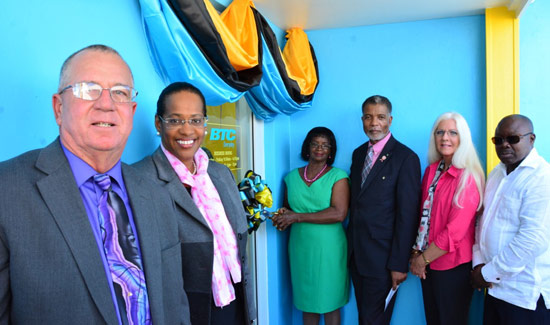Could it be done?
In addition to delivering on all they and the government promised in the months and weeks leading up to the recent controversial closing of the Bahamas Telecommunications Company (BTC) privatization process, they must convince hundreds of BTC workers that CWC is not the enemy, but a caring employer and strategic partner in every sense.
Accepting the defeat that has been handed to them, BTC union leaders have met with CWC representatives to try to iron out the best arrangements for their jittery members.
While it may reach agreement with the previously enraged unions, what is clear is that CWC has found no friend in the Progressive Liberal?Party, and if its leader, Perry Gladstone Christie, delivers on what he promises if he wins the next general election, CWC could face more problems that it bargained for.
But that’s if Christie wins, and if he follows through on his warning to undo this deal.
The former prime minister issued the threat to CWC on several occasions, most recently a week ago as the company and the government were preparing to finalize the transaction.
A lawyer close to the PLP suggested to us that one way in which a new Christie administration could force a deal change is by reducing the three-year exclusivity period for cellular service.
In its agreement with CWC, the government has agreed “to pay to the purchaser such amount as is equal to the loss, expense, damage or other liability (calculated on the same basis as would be used for determining damages for breach of contract) incurred by the purchaser which arises as a result of a second cellular license being issued prior to the third anniversary of completion, and/or a second and third cellular license being issued prior to the fifth anniversary of completion.”
Under the agreement, the government has agreed to pay CWC $100 million if one or more additional cellular licenses are issued within the next year.
It would have to pay $80 million if one or more licences are issued within the next two years and it would have to pay $40 million if it issues one or more licenses within the next three years.
If the government issues a third cellular license after the third anniversary of the closing of the sale, but prior to the fifth anniversary of completion, it would be subject to a $20 million penalty.
So it would seem unlikely that the Christie administration might want to go this route, but given that Christie has not yet received advice from lawyers, that of course remains unclear.
The fact that a new party takes over the government doesn’t change the obligations that were assumed by the previous party because the government is the government.
When he spoke in the House of Assembly recently, Golden Gates MP Shane Gibson, who served as a minister in the Christie Cabinet, noted that there are all sorts of creative ways in which a PLP government could pull the rug from under CWC.
“If we’re in charge of URCA (the Utilities Regulation and Competition Authority), we could have discussions with URCA and make sure that individuals at URCA, advise them, or encourage them not to allow them (CWC) to go up on rates to offset taxes that they would have on certain parts of income.”
But given that URCA is an independent regulator, that too appears unlikely.
Constitutional issues were raised by one respondent when URCA was considering the BTC/CWC deal.
That respondent asserted that the proposed exclusivity of the licensee is ultra vires the Constitution of The Bahamas.
The respondent stated that URCA cannot be party to an unconstitutional result and should require the applicants to address the question as to whether or not the exclusivity arrangement offends the Constitution.
Brian Moree said a degree of responsibility must be attributed to people in public life who make statements concerning these serious matters.



